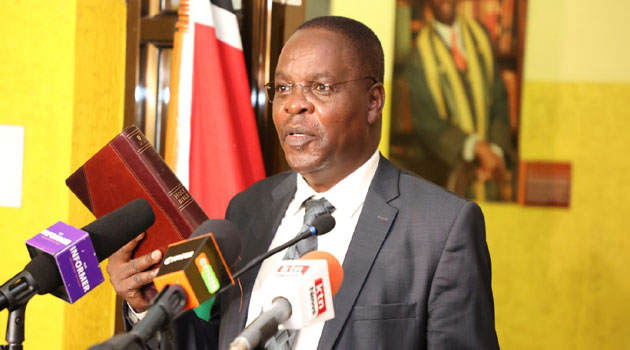Pokot Governor Calls on EACC to Clarify Report on Bribery

By Emmanuel Oyasi,
West Pokot Governor Simon Kachapin has called on the Ethics and Anti-Corruption Commission (EACC) to point out the department that is promoting corruption in West Pokot County.
His remarks comes just a week after EACC released a report on corruption in the Country, according to the survey West Pokot County was named as the leading county in bribery collection.
According to the report, survey respondents paid the largest amount of bribe in West Pokot (Ksh.56, 695) followed by Nairobi (Ksh.37, 768), Murang’a (Ksh.18, 378), Kisii (Ksh.16, 810), Uasin Gishu (Ksh.11, 136), Kitui (Ksh.9, 849), and Busia (Ksh.7, 468) Counties.
In a statement, Mr. Kachapin said that his government has been carrying out its responsibilities regarding financial issues based on transparency, and it is sad to generalize the entire county in matters concerning corruption.
The county boss now wants the commission to clarify its report and identify the department that is responsible for bribery, so that measures can be initiated and the perpetrators held accountable.
“We want EACC to point out the department that is responsible for bribery in this county, but not to generalize the entire county in corruption cases,” said Mr. Kachapin.
In addition, Mr. Kachapin said that his government is ready to cooperate with the relevant authorities to ensure good morals among public servants.
“I am ready to cooperate with the anti-corruption body to make sure that the public servants observe good morals in carrying out their responsibilities,” he said.
In its survey, EACC ranked corruption the fourth most pressing problem facing the country after high cost of living, unemployment and poverty.
Likewise, overall 34.4% of respondents who sought government services were asked to pay a bribe with 28.3% of the respondents paying.
While releasing the report on Wednesday 27th March, EACC chairperson David Oginde said the Commission conducts the National Ethics and Corruption Survey annually to provide corruption indicators, offering insights into trends, patterns, root causes and changing nature of corruption.
